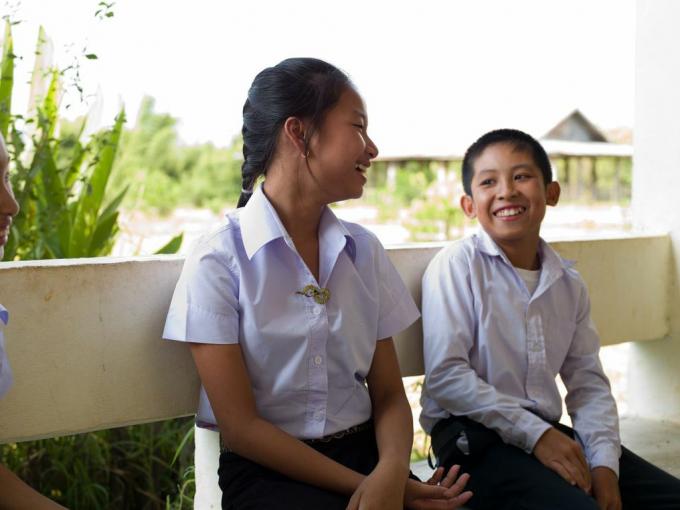Child Rights Governance
Lao PDR is undergoing a rapid modernization process, shifting from subsistence farming to a market-based economy. However, Laos remains one of the poorest countries in South East Asia, with 33% of the population living below the poverty line. Nearly half of the children are vulnerable to stunting, while many also lack access to education and basic healthcare, thereby increasing their risk of dying from preventable diseases. Within Laos, the national budget allocations for all social sectors remain one of the lowest in the region.
The Government of Lao adopted the UN Convention on the Rights of the Child in 1991 and has developed the Law on the Protection of the Rights and Interests of the Child and established the National Commission for Mothers and Children (NCMC) to monitor and coordinate children’s issues across ministries.
The Lao Youth Union (LYU), a national mass organization under the government, has been the main body for children and youth at all levels and a key partner for Save the Children for Child Rights Governance.

Our Programme
Save the Children has been working in Lao PDR for the last 24 years promoting child rights. Save the Children has built the capacity of government authorities, teachers and parents on child rights, Laos’ obligations under the UNCRC and the importance of children’s participation. Save the Children most recently provided technical support to develop a national and three provincial child rights trainer teams within the Ministry of Education, who will roll out child rights training within their local areas.
Save the Children also works to help children in both urban and remote rural areas to understand and promote their rights amongst their peers and duty bearers. Child-led groups are currently being trained and empowered to lead their own child rights community level activities to be able to participate in local and national decision making processes. Save the Children also provides technical support to the Lao Youth Union’s mass media department, creating a child and youth-led national radio programme on child rights, which is now being expanded into television.
In our current strategy, we are widening our reach through existing and new partnerships to empower children and promote a society that listens and involves children in decision-making processes.

